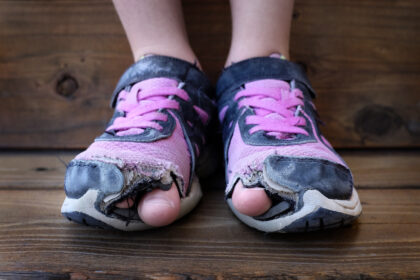The seminary I attended had a majority Black student population. I remember a conversation one day as we gathered before class started. It was a morning filled with news reports about yet another unarmed person of color killed by police. It was a grief-filled morning.
As I listened respectfully to my peers express their anger, sadness, confusion, hopelessness, and a whole array of other complicated emotions, one of my classmates (who happened to be Black) invited me into the conversation: “You haven’t said much, Randy. What are you thinking about all this?”
In the moment, I felt like my opinions were not the most important ones in the room. I said something like, “I’m not sure my voice needs to take up space here.” What I was really expressing, I think, was that I didn’t feel like I had earned a place in that particular conversation.
My classmate replied,
Your voice belongs as much as everyone else’s, because if I tell you you stepped on my toes, you say “I’m sorry.” You don’t say, “I didn’t step down that hard,” or “your toes shouldn’t have been in my way.” You acknowledge it and apologize. So you don’t have to be afraid of your voice taking up a little space.
For this one individual, at least, I had earned a place in the conversation. A very difficult, grief-laden conversation. But also a lot of other conversations. It was a humbling thing to hear. And a gracious approach on the part of my classmate, fearlessly creating space for everyone’s voice.
I don’t think most people like to cause harm. I think most of us want to believe that we are not people who cause harm. It can feel really painful to us for someone to tell us that we’ve hurt them somehow. Because causing someone pain is in conflict with how we want to see ourselves.
You took that in, right? It can feel really painful to us for someone to tell us that we’ve hurt them. So, in that pain we might do a lot of things to protect our image of ourselves. We want to be people who do not cause harm, so when we hear that another person is hurt by something we say or do, part of us wants to defend our self.
We say something snarky. We deny someone else’s experience of pain. We redirect the conversation to how hurt we feel. We blame the other person for being too fragile. We double down and dig in our heels. We act as though it’s either us or them. We walk (or run) away without addressing the injury. We tell the other person they should just leave if they feel so hurt. We do a lot of things that are not apologizing.
I learned a lot in seminary. Not all of it came from professors and textbooks. Although I want to see myself as a person who does not cause harm, the reality is that human beings hurt one another in small and significant ways all the time. It isn’t necessarily what we intend, but it happens. When I find someone’s toes under my shoe, the most important thing to say is, “I’m sorry.” And once the injury is tended, maybe we can make another attempt at understanding one another.
Share this post:
